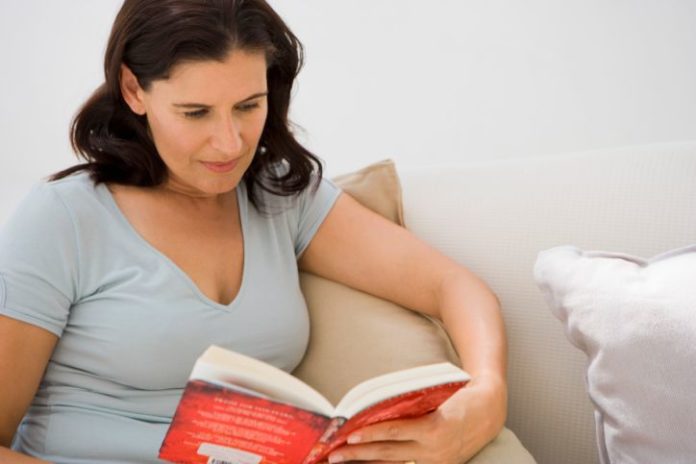Kids don’t come with guidebooks but in the 21st century parents can access a wealth of information about parenting in books. Whether you’re after information about how to care for and feed a newborn, ideas for games to play with a toddler or pre-schooler, tips to help you get your primary schooler to do their homework or advice about how to help your teenager through the puberty blues, you’ll almost certainly find that someone has written a book about it. In fact you’ll probably find hundreds of people have written books about it.
With so many books out there, choosing the right book (or two) can be a real challenge. You’ll want a book with reliable information based on experience or professional qualifications, but unfortunately, you don’t necessarily need to be experienced or qualified to publish a book. So how does a parent decide whether a parenting book contains reliable information and assess whether the author has relevant qualifications? What other things should parents consider when deciding which of the appealing titles to trust when it comes to getting advice about raising their children?
What do you want to know?
 A good place to begin is by determining exactly what type of information you want your book to contain. Parenting is a diverse job which spans decades and the type of information you require will depend on your child’s age and stage of development, as well as the questions and curiosities you have. Are you looking for a book about keeping your child physically healthy or are you more interested in how to help them develop their thinking and concentration skills? Do you want general information about a range of parenting topics or specific information about a topic that’s relevant to your child, for example a health condition like childhood obesity or a specific interest like kids sports.
A good place to begin is by determining exactly what type of information you want your book to contain. Parenting is a diverse job which spans decades and the type of information you require will depend on your child’s age and stage of development, as well as the questions and curiosities you have. Are you looking for a book about keeping your child physically healthy or are you more interested in how to help them develop their thinking and concentration skills? Do you want general information about a range of parenting topics or specific information about a topic that’s relevant to your child, for example a health condition like childhood obesity or a specific interest like kids sports.
Like children, books about parenting come in many shapes and sizes, so it’s important to have a good idea what you’re looking for before you hit the book shop. You’ll find the ‘parenting bible’ type books which cover the entire parenting journey, from birth to 18 years and have bits of information on just about everything. These are great if you’re after general information about many different topics, but if you’re after some specific information you’ll probably find the level of detail in these books is a bit thin.
Another option is to go for a book that covers a shorter period of your child’s development, for example a book which discusses development from birth to five years, or one that provides an overview of adolescence. Because they cover a shorter period, the information will probably be a bit more detailed. However it will still probably be general information which may not address your particular questions and concerns.
If you have a specific parenting issue that you’d like more information about, perhaps you can’t drag your teenager away from social networking sites or online games, or you’re finding it difficult to encourage your child to exercise, it’s probably best to look for a book on that specific topic. Bear in mind that the internet also contains reliable (and some not so reliable) information on parenting, and if your question or interest is very specific, you might save yourself some hard earned cash by learning to assess the reliability of and access free information online.
Author
As you think about what information it is you’re looking for, you might also start browsing titles and jotting down those that sound appealing and appropriate. From there you can begin assessing whether the book is trustworthy, by finding out a bit about the author and their credentials. Bear in mind that most authors will probably claim to know everything there is to know about the parenting topic on which they write. They want to sell their book after all. So how do you sort out the marketing hype from the author’s real parenting experience or professional knowledge?
The author bio is a good place to start. Usually found on the jacket or in the introductory pages, the bio is where the author details their credentials, including personal experience, university degrees and other books written on the topic. What experience does the author claim to have? Are they a paediatrician, GP, midwife, nurse, psychologist, full time parent? Does the experience they have sound like the experience and qualifications you want the person advising you on how to raise your children should have?
What qualifies as ‘appropriate expertise’ really depends on the type of information you’re after. If you want to know about the experiences of other parents or how they’ve raised their kids, the best experience is having been a mum or dad. No qualifications are needed to talk about parenting experiences, but for some types of information, a university degree should be considered a prerequisite. For example, if you’re looking for a book on keeping your child healthy you may want the author to be a doctor, nurse or other health professional. If you’re more interested in child behaviour and developing their minds, perhaps a developmental psychologist or teacher (experienced in working with children of a similar age).
Age
 Like the latest fashion trends and must have gadgets, information about parenting changes all the time. This is partly because parenting theories come and go as scientific evidence and social values change (just because your mum or grandma used a book written in the 1950s as their parenting bible, doesn’t mean it’s appropriate for 21st century parenting!). But it’s also because as theories and values change, regulations and laws which relate to parenting also change.
Like the latest fashion trends and must have gadgets, information about parenting changes all the time. This is partly because parenting theories come and go as scientific evidence and social values change (just because your mum or grandma used a book written in the 1950s as their parenting bible, doesn’t mean it’s appropriate for 21st century parenting!). But it’s also because as theories and values change, regulations and laws which relate to parenting also change.
For example, in Australia new regulations which stipulate children must be restrained in a car seat until they reach seven years were introduced in 2010, whereas previously car seats were only mandatory for younger children and babies. Advice about how to lie your babies down to sleep has changed since the 1950s when it was recommended never to lie a baby on their back to prevent them choking if they vomited- nowadays parents are advised to lie their babies only on their backs to prevent sudden infant death syndrome (SIDS).
These are just a couple of examples of the way advice and regulations related to parenting change over time. A good parenting book must contain the latest information and advice, so when you’re assessing the quality of books on your list of maybes, don’t forget to check the date of publication. Go for a book which has been published in the last few years.
Edition
The number of previous editions is also a good thing to consider. Each time a new edition is published the book is updated, although it’s structure and much of the information it contains remains the same. If the book has been through several (or many) editions, it’s a good sign it’s a popular book- the publisher won’t release a new edition if the first one didn’t sell. It’s also more likely that the book has been reviewed by other parents and experts in the field if it has gone through several editions. But bear in mind that popular doesn’t necessarily mean reliable, so you’ll still need to check the author bio and other aspects of the book.
Publisher
Information about the company or organisation which published the book can also help you assess its quality and reliability. There’s a big difference between the type of information published, for example by a religious organisation compared to a professional association (e.g. for child psychologists). Some publishing houses deal with particular topics, for example they may print scientific information. Books published by government departments or health professional organisations might be good options. These publishers are more likely to have the expertise to properly assess the scientific credibility of information in the book than a general publishing house which deals with all sorts of topics and styles of writing- just because they published your favourite novel, doesn’t mean the publisher is a good source for parenting information.
Place of publication
 There are some things about raising children that are universal, but there are also a lot of parenting techniques and values which are specific to a particular culture or country, and laws and regulations (like the seat belts mentioned above) tend to be country or state specific. Parenting books which offer advice about where to seek help or get information often also provide information that is specific to a particular state or country. It’s not always necessary to buy a book published in the country you live, but as a parent you will need to bear in mind that some of the information in books published overseas may not apply.
There are some things about raising children that are universal, but there are also a lot of parenting techniques and values which are specific to a particular culture or country, and laws and regulations (like the seat belts mentioned above) tend to be country or state specific. Parenting books which offer advice about where to seek help or get information often also provide information that is specific to a particular state or country. It’s not always necessary to buy a book published in the country you live, but as a parent you will need to bear in mind that some of the information in books published overseas may not apply.
For example health information such as which immunisations children should have at which ages varies from country to country- if you’re living in Australia but reading a book published in the United States, you may be reading information which does not apply to your child. Even if the book was published in your country of residence, remember that health information should always be verified with your doctor- reading a parenting book should never take the place of talking to doctors and other health professionals about your situation.
Reviews
If you’ve assessed the author, publisher and age of several books and are still trying to decide which one is right for you, checking out some reviews might help you decide. You’ll find parenting book reviews in many different places but newspapers and the internet (such as ratings with online book stores) are two popular sources. When reading reviews remember that they are essentially opinion pieces and opinions differ and are not necessarily informed by scientific evidence. You may want to look for a reviewer who has some parenting expertise and also assess whether the reviewer has any biases, for example if they hold particular religious or social beliefs. Also check whether the reviewer has written on the site before – if it’s their first contribution to that forum and it’s overly glowing – it may be the author’s friend!
Recommendations
The best reviewer for a book may be a trusted friend or family member who is also raising children and has similar values to your own. Ask them which parenting books they use and if they can recommend one with the type of information you’re looking for. Teachers, doctors and other health professionals may also be able to recommend reputable books. But remember that even if it’s your best friend that’s recommending the book, they may have different information needs to you- it’s still a good idea to assess the books credibility before you buy it or use the advice it contains.
Readability
 Last, but certainly not least important in your book assessment criteria, make sure the book you choose is readable and interesting. That text book for paediatricians might contain all the information you want to know about your baby, but if it’s written in medical jargon which you can’t make head or tail of, it’s not much use. Think about how you like information presented- do you prefer reading big chunks of text or do you find information presented in pictures easier to interpret?
Last, but certainly not least important in your book assessment criteria, make sure the book you choose is readable and interesting. That text book for paediatricians might contain all the information you want to know about your baby, but if it’s written in medical jargon which you can’t make head or tail of, it’s not much use. Think about how you like information presented- do you prefer reading big chunks of text or do you find information presented in pictures easier to interpret?
There’s no point buying a book that bores you to tears. Look for a style of writing you find interesting and informative. Okay, some information is ‘boring’ almost by nature, but lots of parenting information, for example ideas for games with kids or stories about other parent’s experiences should be light-hearted, easy to read and fun. Even boring medical information can be written in a manner that’s easy to interpret and accessible- if you need the dictionary to get through the first paragraph, the book you’re reading is probably not the best parenting book for you.
But rest assured the right book on how to raise your children is waiting for you online or on a bookshop shelf near you. With a little persistence and some critical assessment, you will find the information you’re after.
Use the Choosing parenting books checklist to make sure you’ve considered all the important points.
Accessing parenting books
Once you’ve decided which book/s you want to read, Think about how you’ll access them. Books can be expensive, especially if you buy them brand new, so think about borrowing or swapping books. Local libraries are one good place to look for book loans, but friends and family members with children might also be able to hand on parenting books. Because they often relate to just a year or two of a child’s development, you might also be able to find recently published books at second hand shops or sales.
If you fall in love with a book and want to buy it new, take the time to go to the book shop and flick through, or view and online preview before you make your purchase. You can’t judge a book by its cover, so even if the title and blurb make it sound perfect, have a quick squiz at the contents too. If you’ve made up your mind to make a purchase, shop around online or at bookshops so you get the best price.
Happy parenting reading!



 (8 votes, average: 4.50 out of 5)
(8 votes, average: 4.50 out of 5) 






